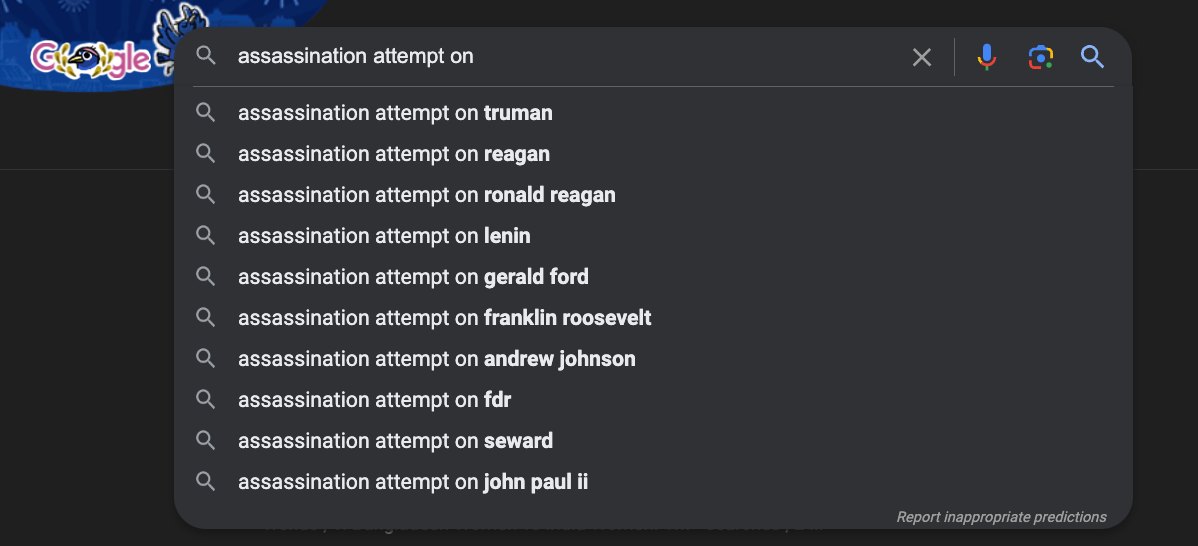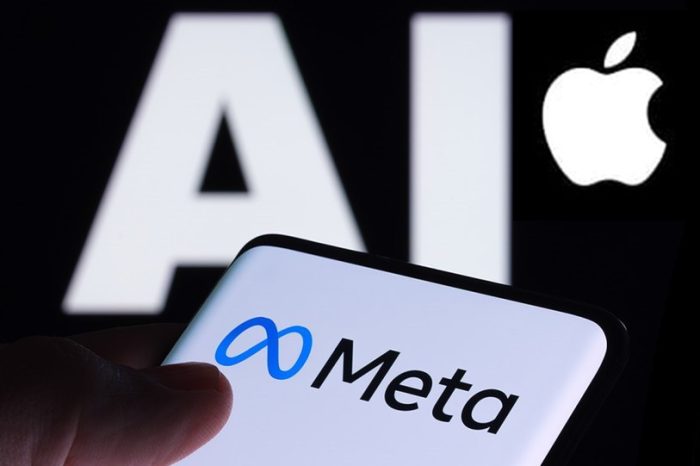Google faces backlash over autocomplete suppression allegations following assassination attempt on Trump

Over the weekend, several X users accused Google of suppressing autocomplete when they tried to search for information about the assassination attempt on former President Donald Trump. The controversy has sparked widespread debate about the role of search engines in disseminating information.
Critics argue that Google’s omission of this event from its autocomplete feature suggests an attempt to prevent the American public from recalling the incident. Autocomplete is designed to help users find information faster and more accurately, but in this case, it seems to be failing to do so.
Responding to the outcry on X about potential election interference and the assassination attempt on Trump, Google issued a statement.
“We’ve got protections in place against Autocomplete predictions associated with political violence, which is normally a good thing. That said, we’re working on improvements to ensure our systems are more up-to-date. Regardless of what Autocomplete shows, you can always search for whatever you want to and we’ll provide access to the info available, including about this horrific incident,” Google wrote on X.
That’s right — we have protections in place for topics like political violence, which typically work well. But we're working on improvements to make our predictions more up to date. Regardless of what Autocomplete shows, people can always search for whatever they want to, and we…
— Google Communications (@Google_Comms) July 28, 2024
However, Google’s response has not quelled concerns. Despite Google’s explanation, users highlighted an inconsistency: while “assassination on” appears in autocomplete for many figures, it notably excludes Trump.

While Google claims that no “manual action was taken on these predictions,” and that its algorithms are designed to protect against autocomplete suggestions “associated with political violence,” users have pointed out inconsistencies.
However, it didn’t take long for X owner Elon Musk to weigh in after an X user highlighted that Alphabet, Google’s parent company, was a leading donor to President Joe Biden’s 2020 election campaign.
“Probably just a coincidence that Alphabet (Google) employees were the top donors to Biden,” Musk quipped on X.
Probably just a coincidence that Alphabet (Google) employees were the top donors to Biden https://t.co/H02dxmKPkL pic.twitter.com/tIj0THeTVc
— Elon Musk (@elonmusk) July 29, 2024
Meanwhile, this isn’t the first time Google has faced backlash over controversial issues. In May, the search giant had to suspend its AI Overview feature after it suggested bizarre health tips like “Eat rocks” and “Add glue to your pizza” to users.
In retrospect, this incident underscores broader concerns about the potential for autocomplete algorithms to filter suggestions, potentially steering users away from certain topics. The situation also highlights the issue of how search engines manage sensitive information and the implications for public knowledge and discourse.
The incident also raises critical questions about the balance between automated content moderation and the free flow of information. As Google navigates these allegations and works on improving its systems, the debate over the balance between algorithmic protections and transparency continues.




